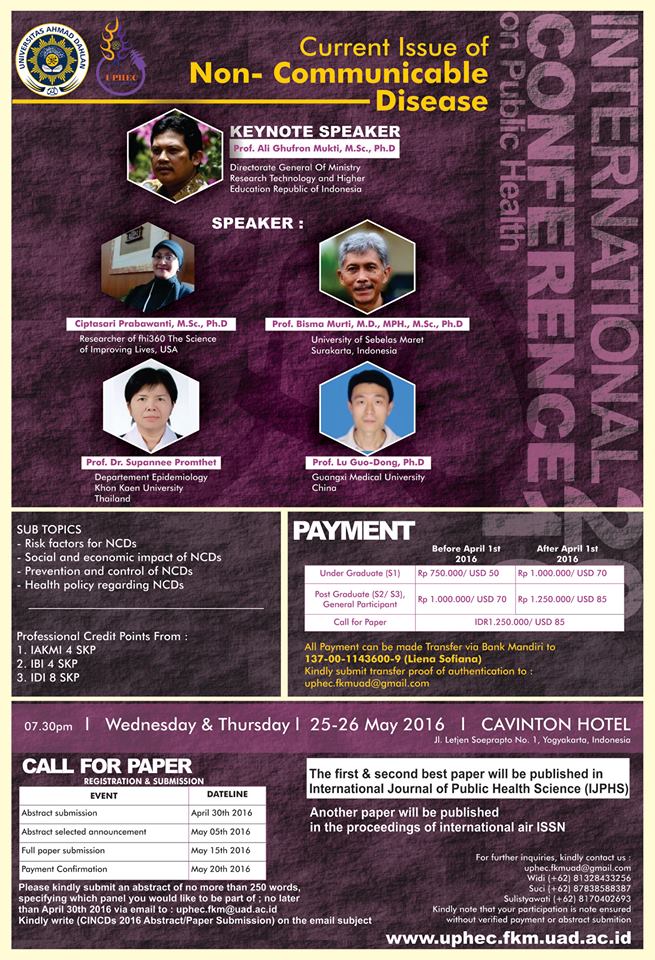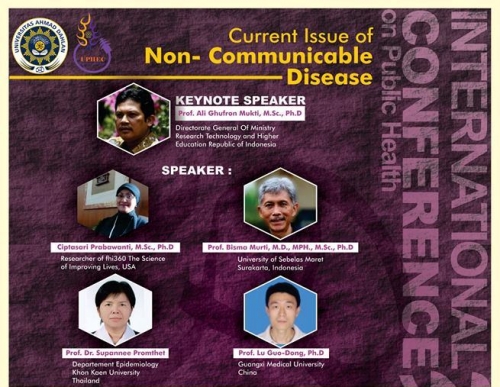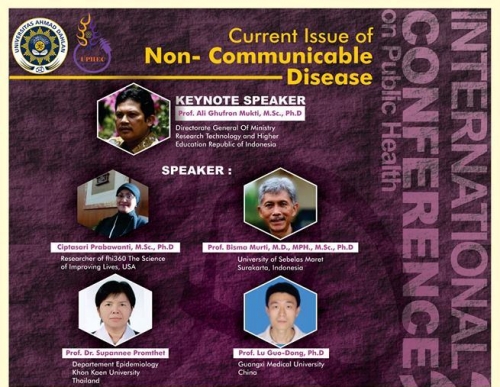FKM UAD conducts an International Seminar of Non-Communicable Disease
 For the last few years, there has been an increasing number of patients with non-communicable diseases like cancer and diabetes mellitus. One of the causes is the changes of people’s lifestyles. Addressing this issue, Public Health Faculty of Ahmad Dahlan University (FKM UAD) is going to conduct an International Seminar with the theme “Issues of Non-Communicable Diseases” (25-26/5/2016) at Cavinton Hotel, Yogyakarta.
For the last few years, there has been an increasing number of patients with non-communicable diseases like cancer and diabetes mellitus. One of the causes is the changes of people’s lifestyles. Addressing this issue, Public Health Faculty of Ahmad Dahlan University (FKM UAD) is going to conduct an International Seminar with the theme “Issues of Non-Communicable Diseases” (25-26/5/2016) at Cavinton Hotel, Yogyakarta.
In the seminar, FKM UAD is inviting some experts. The keynote speaker is Prof. Dr. Ali Ghufron Mukti from Human Resources Directorate General of Research, Technology and Higher Education Ministry. Other speakers are Prof. Bhisma Murti, Ph.D. from Sebelas Maret University Surakarta, Prof. Lu Guo Dong, Ph.D from Guangxi Medical University China, Prof. Supannee Promthet fromKhon Kaen University, Thailand and Ciptasari Prabawanti, Ph.D., a researcher from The Science of Improving Lives USA.
Public Relation of FKM UAD, Ahmad Ahid Mudayana, SKM.,MPH. said that this seminar is aimed to give clear information about the increase of non-communicable diseases issues. To note, this kind of diseases is so far prevalent among middle to high classes but now, they also attack lower classes. The national health insurance from National Social Security Agency (BPJS) should be alert for this tendency.
According to Ahid, non-communicable diseases have extensive effects, not only related to health but also to people’s economy. The healing from these diseases requires more money than those of communicable diseases so that it affect the people’s as well as government economy.
‘If the spread of these diseases is not prevented, it will cause financial problem. It will be difficult for the society to be independent financially it spends more of their expenses. The government has also to provide big amount of budget to fund the BPJS cost for the poor society. Therefore, this seminar is important to find solutions toward the spread of non-communicable diseases, he said, on Monday (25/4/2016)



